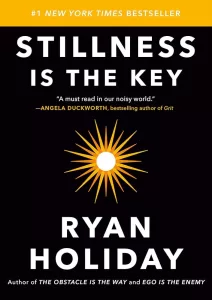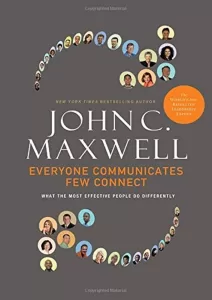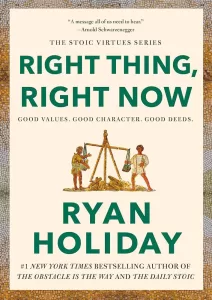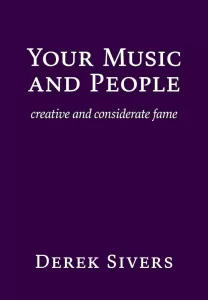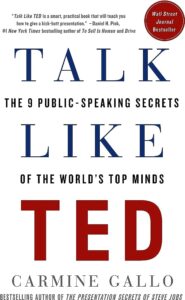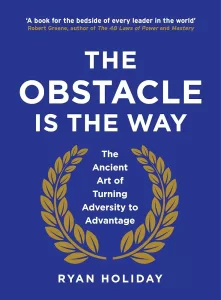Book Review: “Stillness Is the Key”
Book: Stillness Is the Key by Ryan Holiday
Reviewer: Bobby Powers
My Thoughts: 9 of 10
I've loved every book by Holiday, and this one is no exception. Stillness Is the Key is a well-timed wake-up call for our busy, stressed-out world. Holiday combines the wisdom of ancient Stoic thinkers like Seneca, Epictetus, and Marcus Aurelius with modern tales from leaders, athletes, and artists to explain how to find internal peace amidst turmoil (politics, war, disunity, etc.).
What I Learned from the Book
There's a difference between solitude and stillness. Solitude is isolated peace and quiet. Stillness is internal peace and quiet, and it's something you can find whether you're in a crowd of thousands or sitting by yourself. Performing a concert at Radio City Music Hall or meditating in your bedroom. Arguing a case in front of the Supreme Court or self-reflecting in your journal.
Stillness is a state of mind, and it's something we can cultivate within ourselves. We can train ourselves to find calm in periods of unrest. Many practices and paths can lead to stillness, including Stoicism, meditation, self-reflection, and gratitude. If finding that type of inner peace is important to us, we need to put in the time to build our quiet reserves of inner peace.
"It's ironic that stillness is rare and fleeting in our busy lives, because the world creates an inexhaustible supply of it. It's just that nobody's looking."
Selected Quotes & Ideas from the Book
Stillness
- Stillness = "To be steady while the world spins around you. To act without frenzy. To hear only what needs to be heard. To possess quietude—exterior and interior—on command."
- "To Seneca and his fellow adherents of Stoic philosophy, if a person could develop peace within themselves...then the whole world could be at war, and they could still think well, work well, and be well. 'You may be sure that you are at peace with yourself,' Seneca wrote, 'when no noise reaches you, when no word shakes you out of yourself, whether it be flattery or a threat, or merely an empty sound buzzing about you with unmeaning sin.'"
- "Stillness is what aims the archer's arrow. It inspires new ideas. It sharpens perspective and illuminates connections. It slows the ball down so that we might hit it...Stillness allows us to persevere. To succeed. It is the key that unlocks the insights of genius, and allows us regular folks to understand them."
- "Anyone who has concentrated so deeply that a flash of insight or inspiration suddenly visited them knows stillness."
- "We must cultivate mental stillness to succeed in life and to successfully navigate the many crises it throws our way. It will not be easy. But it is essential."
Be Fully Present
- "To experience another person fully in the moment is a rare thing. To feel them engage with you, to be giving all their energy to you, as though there is nothing else that matters in the world, is rarer still."
- "Being present demands all of us. It's not nothing. It may be the hardest thing in the world."
- "Even during a quiet evening at home, all we're thinking about is the list of improvements that need to be made. There may be a beautiful sunset, but instead of taking it in, we're taking a picture of it. We are not present...and so we miss out. On life. On being our best. On seeing what's there."
- "We do not live in this moment. We, in fact, try desperately to get out of it—by thinking, doing, talking, worrying, remembering, hoping, whatever. We pay thousands of dollars to have a device in our pocket to ensure we are never bored."
- "The less energy we waste regretting the past or worrying about the future, the more energy we will have for what's in front of us."
- "You have plenty on your plate right now. Focus on that, no matter how small or insignificant it is. Do the very best you can right now. Don't think about what detractors may say. Don't dwell or needlessly complicate. Be here. Be all of you."
- "Don't let the beauty of life escape you. See the world as the temple that it is. Let every experience be churchlike."
Examples of Finding Stillness
- JFK during the Cuban Missile Crisis: "In the tensest moments, Kennedy sought solitude in the White House Rose Garden (afterward, he would thank the gardener for her important contributions during the crisis). He would go for long swims, both to clear his mind and to think."
- Dwight D. Eisenhower during his presidency: "His solution was strict adherence to the chain of command when it came to information. No one was to hand him unopened mail, no one was to just throw half-explored problems at him. Too much depended on the stillness within that he needed to operate to allow such haphazard information flow."
- Anne Frank while hiding from the Nazis: "According to her father, Otto, Anne didn't write every day, but she always wrote when she was upset or dealing with a problem. She also wrote when she was confused, when she was curious. She wrote in that journal as a form of therapy...'Paper,' she said, 'has more patience than people.'"
- Theodore Roosevelt recovering from the death of his mother and wife: "Yes, Teddy was a hunter and a rancher and a man's man, but his two greatest passions? Sitting quietly on a porch with a book and birdwatching."
- Winston Churchill's daily routine of rest: "After lunch, he would go for a walk around Chartwell, his estate in the English countryside, feeding his swans and fish—to him the most important and enjoyable part of the day. Then he would sit on the porch and take in the air, thinking and musing. For inspiration and serenity he might recite poetry to himself. At 3 p.m., it was time for a two-hour nap."
- Søren Kierkegaard's daily habit of walking: "Above all, do not lose your desire to walk: Every day I walk myself into a state of wellbeing and walk away from every illness; I have walked myself into my best thoughts, and I know of no thought so burdensome that one cannot walk away from it."
Practical Tips
- "There's a great saying: Garbage in, garbage out. If you want good output, you have to watch over the inputs. This will take discipline. It will not be easy. This means fewer alerts and notifications. It means blocking incoming texts with the Do Not Disturb function and funneling emails to subfolders...It means studying the world more philosophically—that is, with a long-term perspective—rather than following events second by second."
- "Napoleon was content with being behind on his mail, even if it upset some people or if he missed out on some gossip, because it meant that trivial problems had to resolve themselves without him. We need to cultivate a similiar attitude—give things a little space, don't consume news in real time, be a season or two behind on the latest trend or cultural phenomenon, don't let your inbox lord over your life. The important stuff will still be important by the time you get to it. The unimportant will have made its insignificance obvious (or simply disappeared)."
- "Your job, after you have emptied your mind, is to slow down and think. To really think, on a regular basis.
- ...Think about what's important to you.
- ...Think about what's actually going on.
- ...Think about what might be hidden from view.
- ...Think about what the rest of the chessboard looks like.
- ...Think about what the meaning of life really is."
Choose Virtue and Contentment
- "No one is more exhausted than the person who, because they lack a moral code, must belabor every decision and consider every temptation."
- "Each of us must cultivate a moral code, a higher standard that we love almost more than life itself. Each of us must sit down and ask: What's important to me? What would I rather die for than betray? How am I going to live and why?"
- "A person enslaved to their urges is not free—whether they are a plumber or the president."
- "You will never feel okay by way of external accomplishments. Enough comes from the inside. It comes from stepping off the train. From seeing what you already have, what you've always had."
Other Random Nuggets of Wisdom
- "A wealth of information creates a poverty of attention." -Herbert Simon
- "If you wish to improve, be content to appear clueless or stupid in extraneous matters." -Epictetus
- "Ask yourself at every moment, 'Is this necessary?'" -Marcus Aurelius
- "There is no enjoying the possession of anything valuable unless one has someone to share it with." -Seneca
- "Who is there who would wish to be surrounded by all the riches in the world and enjoy every abundance in life and yet not love or be loved by anyone?" -Cicero
- "Keep a notebook. Travel with it, eat with it, sleep with it. Slap into it every stray thought that flutters up into your brain." -Jack London
- "I examine my entire day and go back over what I've done and said, hiding nothing from myself, passing nothing by." -Seneca, re: his nightly journaling practice
- "Set thy heart upon they work, but never on its reward. Work not for the reward; but never cease to do they work." -The Bhagavad Gita
- "For what is a man profited, if he shall gain the whole world, and lose his own soul?" -Jesus
- "The essence of greatness is the perception that virtue is enough." -Ralph Waldo Emerson
- "History relates no instance in which a conqueror has been surfeited with conquests." -Stefan Zweig
- "When you realize there is nothing lacking, the whole world belongs to you." -Lao Tzu
- "Nothing is enough for the man to whom enough is too little." -Epictetus
- "Solitude allows you to reflect while others are reacting. We need solitude to refocus on prospective decision-making, rather than just reacting to problems as they arise." -General James Mattis
- "He that is slow to anger is better than the mighty; and he that ruleth his spirit than he that taketh a city." -Proverbs 16:32
- "There is no more stupefying thing than anger, nothing more bent on its own strength. If successful, none more arrogant, if foiled, none more insane—since it's not driven back by weariness even in defeat, when fortune removes its adversary it turns its teeth on itself." -Seneca
- "Here is my secret. It is very simple: It is only with the heart that one can see rightly, what is essential is invisible to the eye." -Antoine de Saint-Exupéry, The Little Prince
- "A crowded world thinks that aloneness is always loneliness and that to seek it is perversion." -John Graves
Think you’d like this book?
Other books you may enjoy:
- Meditations by Marcus Aurelius
- Deep Work by Cal Newport
Other notable books by the author:
- Perennial Seller
- Ego Is the Enemy
- The Obstacle Is the Way
Want to become a stronger leader?
Sign up to get my exclusive
10-page guide for leaders and learners.
